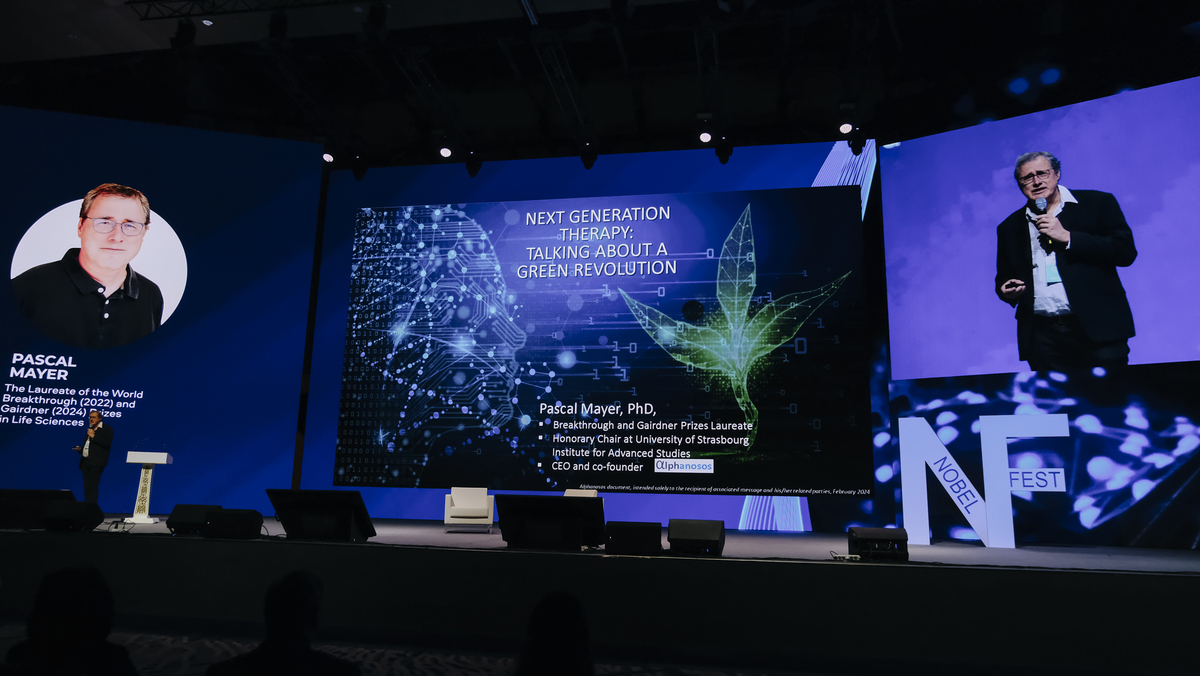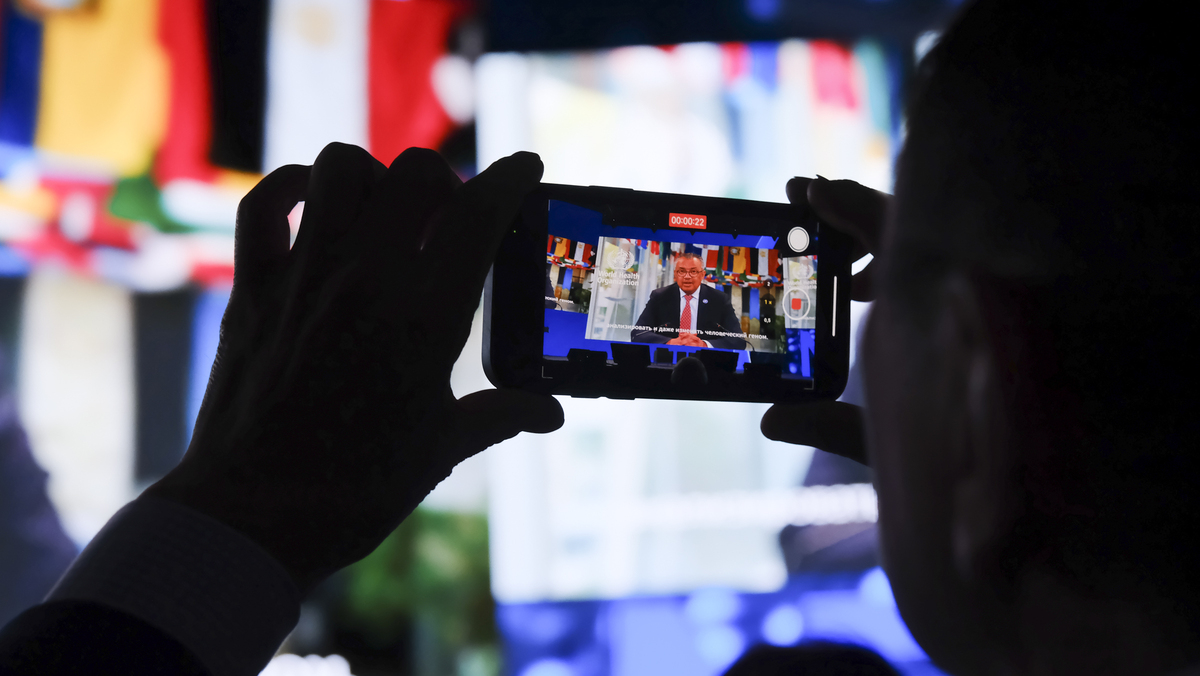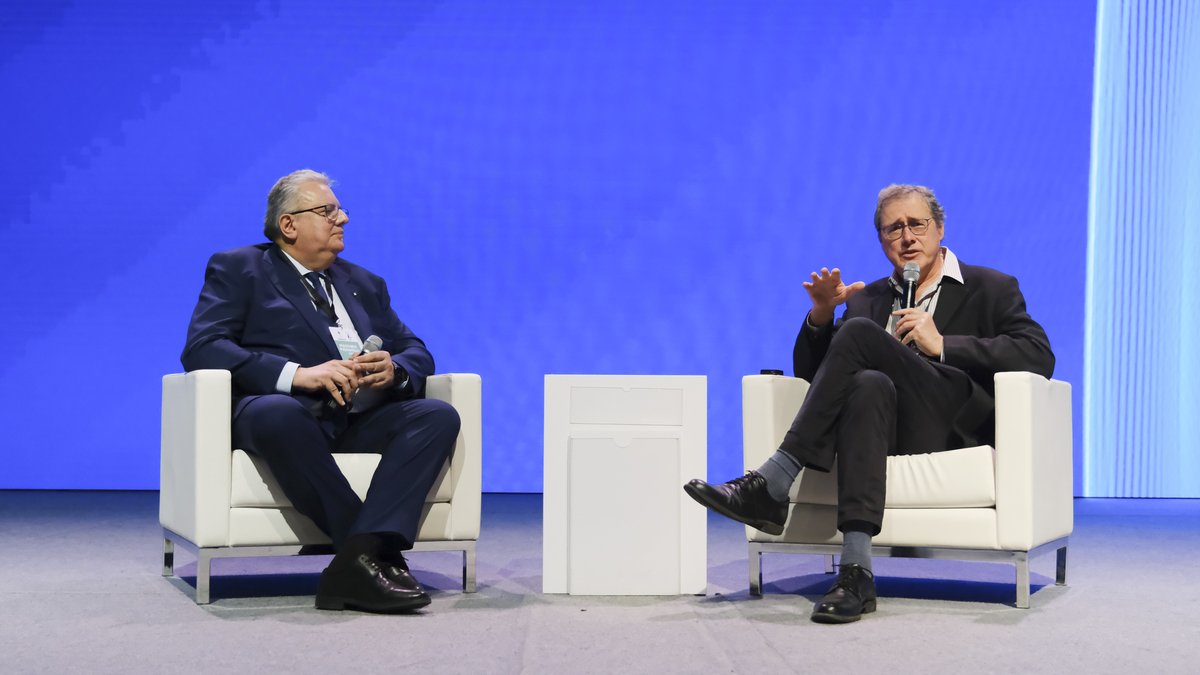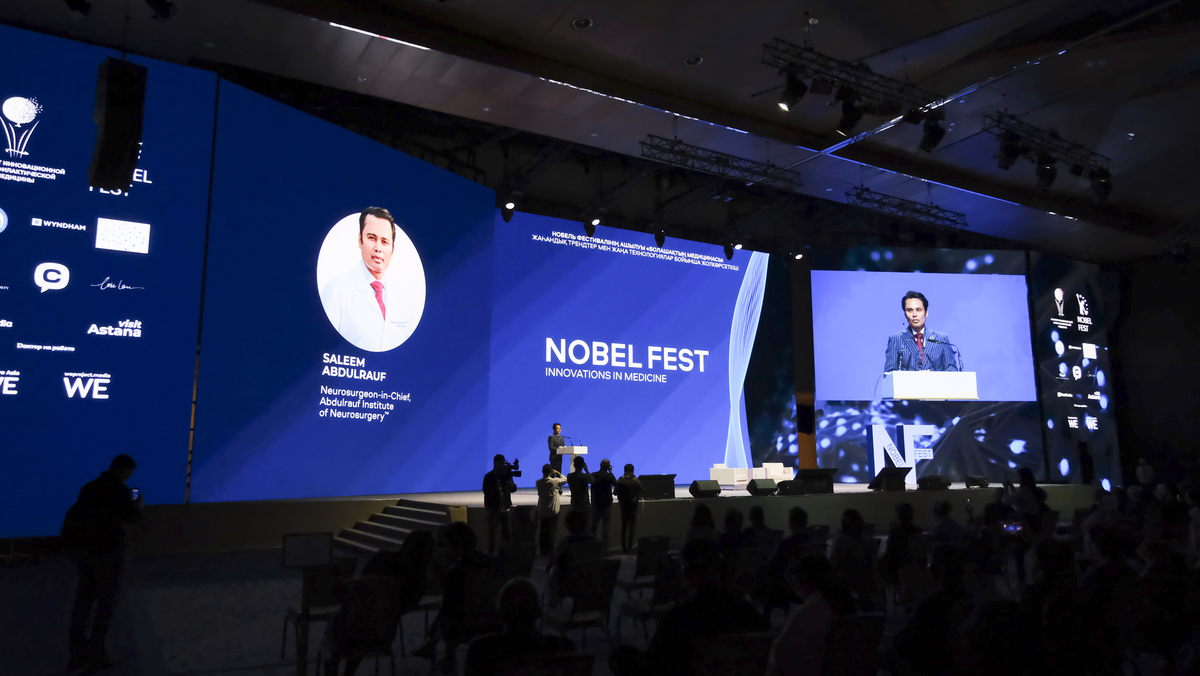ASTANA—Leading medical experts from across the globe, including Nobel laureates, convened for the Nobel Fest festival in Astana on April 27-28. The festival focused on innovations in medicine and discussed topics ranging from the unexplored mysteries of the brain to the ailments of the modern era and advancements in longevity.

Pascal Mayer during his presentation of Next Generation Therapy: talking about a Green Revolution. Photo credit: Nobel Fest
“It is the first Nobel Fest in medical innovations in Central Asia where we gathered global leaders in biotech, artificial intelligence (AI), neuroscience, brain science and longevity,” said Maxat Kurbenov, Nobel Fest founder and CEO.
The festival drew over 20 speakers and more than 5,000 participants. It aimed to unite eminent figures from the medical field, innovators and the public to exchange knowledge on cutting-edge technologies and ideas driving medical advancement and human health improvement. Additionally, it sought to inspire students to education, science and innovation.
Tedros Adhanom Ghebreyesus, director-general of the World Health Organization, addressed the plenary session via a video message.

Tedros Adhanom Ghebreyesus, Director-General of the World Health Organization addressing the plenary session via a video message. Photo credit: Nobel Fest
“Innovation has always been a driving force in health, and it is most powerful when it narrows inequalities and responds to countries’ needs. That is why equitable access to vaccines and other tools is the core principle of the pandemic agreement that World Health Organization (WHO) member states are now negotiating. WHO was founded 76 years ago on the condition that health is not a luxury for those who can afford it, but a fundamental right for all people,” he said.
Nobel Fest featured plenary sessions on global medical trends, including new technologies, major neurosurgery breakthroughs, pharmacological missions, genetic analysis of dementia and Alzheimer’s disease, and new frontiers in brain surgery, AI and longevity.
“The organization here is fantastic like it was last year. I hope this event and presentations will motivate young people to pursue fundamental science or to bring science to society,” said Pascal Mayer, a French scientist who was awarded the Breakthrough Prize in Life Sciences in 2022.

Q&A session with Pascal Mayer and Massimo Pignatelli. Photo credit: Nobel Fest
Mayer noted Kazakhstan’s conducive environment for developing medical startups, citing its encouragement and motivation for youth.
During his presentation, Mayer highlighted the significance of the green pharmaceutical revolution, advocating for a shift toward natural products. He emphasized the importance of a robust biophysical foundation using AI and statistical approaches based on natural products that can be cultivated both on and off-field. This approach aims to minimize the landfill and waste.
The presentation was followed by a Q&A session with Massimo Pignatelli, dean of the School of Medicine at Nazarbayev University. The discussion explored biological concerns and the time and cost-effectiveness of Mayer’s approach to drug production, along with advice for students in Kazakhstan.
“It requires a lot of time, effort and imagination to innovate. Focus on what you have at hand and build your imagination until you can create something novel, innovative and game-changing with the resources available, even if it is not the latest technology,” said Mayer.
Saleem Abdulrauf, founding chairman of the Department of Neurosurgery at Saint Louis University and Clinical Professor of Neurosurgery at George Washington University in Washington, D.C., shared his groundbreaking experiences in neurosurgery innovations. He cited examples of treating complex aneurysm cases unsuitable for standard methods like clipping or coiling due to their size.

Saleem Abdulrauf during his presentation on neurosurgery innovations. Photo credit: Nobel Fest
“There is no greater honor in the world than touching the life of a human you never met because you taught someone a technique that helped to save that life,” said Abdulrauf, underlining the importance of passing the knowledge to the next generation of medical professionals.
According to Abdulrauf, this is an outstanding event for Kazakhstan and Central Asia to introduce ideas to a youth poised to benefit from them.
“I am very impressed by the young generation in Kazakhstan. They are very smart and enthusiastic about getting into the medical sciences, thinking of concepts, getting involved with research and traveling. I think this is a great forum for that,” added Abdulrauf.
In 2023, the theme of the Nobel Festival was Digital Upgrade, uniting Nobel laureates and world science stars of IT, economics, and innovation and covering topics ranging from AI and climate change to the economy, startups, the labor market, new science frontiers, and humanity’s prospects.


